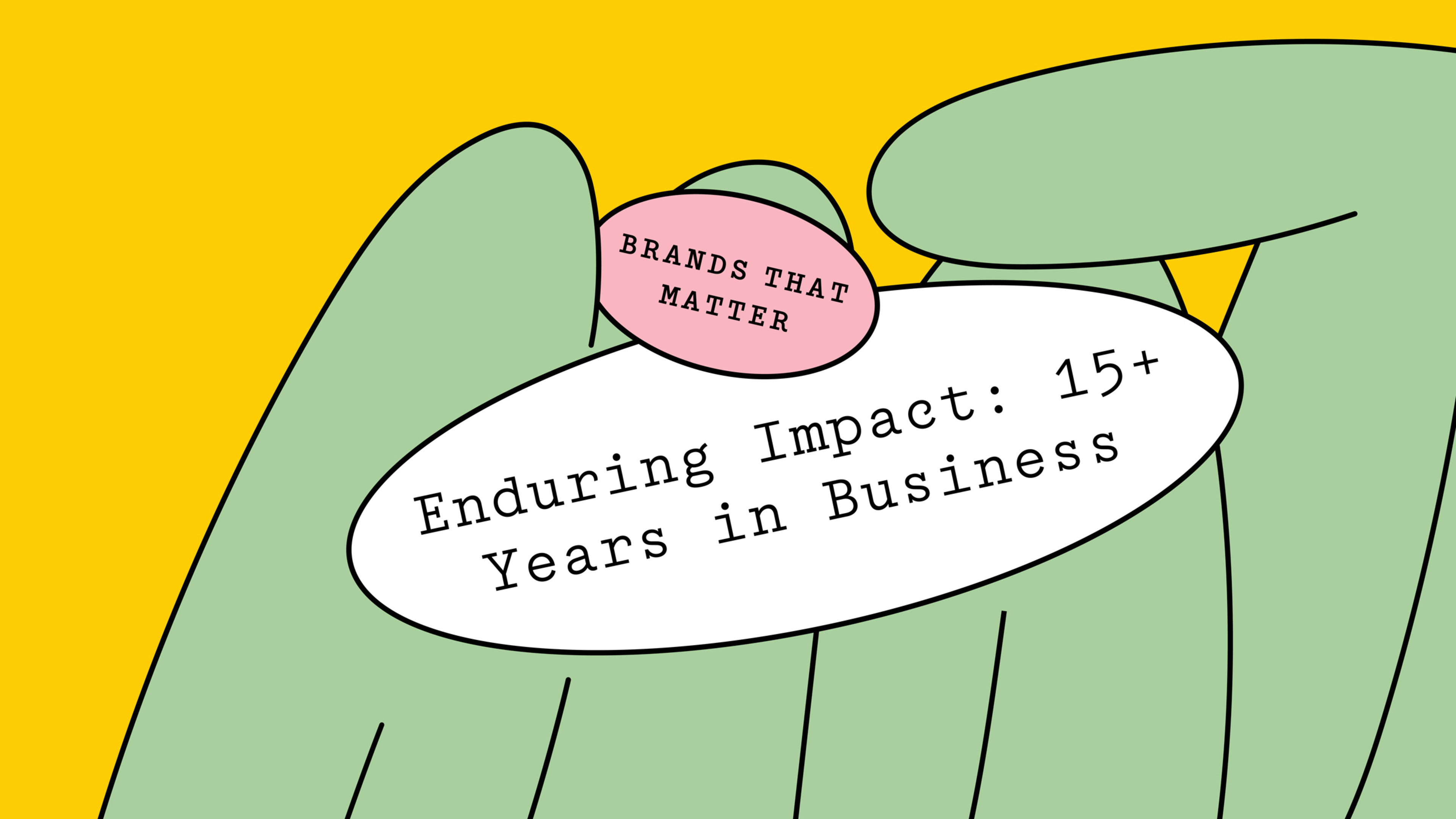For a company to stand the test of time, does it take innovative marketing strategies? A willingness to change with the times? A no-holds-barred mindset? How about all of the above?
These four Brands That Matter being recognized for Enduring Impact have all been around for more than 15 years—some for decades longer—and they’ve all managed to maintain their station at the top of their respective industries by keeping pace with changing needs and delivering on them in a way that is consistent with their ethos.
JanSport knows that with each generation comes a unique set of priorities and a new set of needs, and Gen Z is no exception. Pepsi is the paragon of big marketing swings (with some misses), and its recent ad strategies have paid off in a big way. OkCupid used a viral ad campaign to fill a niche in the dating app market and brand itself as progressive. Cargill didn’t miss a beat when the pandemic decimated its industry, instead reaffirming itself as a leader and expanding its environmental impact. Above all else, these honorees prove that staying nimble can aid longevity.
JanSport
JanSport has been around for more than 50 years, but the beloved backpack brand isn’t afraid to change with the times. That means meeting new consumers where they are and addressing their priorities by emphasizing sustainability in its production and addressing mental health in its marketing.
More than 80% of JanSport’s styles are now created with 100% recycled main body fabric, and the company is tapping into the nostalgia factor with its Surplus Collection, made from factory scraps and inspired by heritage designs from 1960 to 1980. In an effort to address Gen Z’s mental health crisis, the brand created the TikTok series “Disorientation,” cheekily hosted by drag queen Jan Sport and featuring TikTok comedians who made skits about topics like back-to-school anxiety and family issues.
Pepsi
For better or worse, Pepsi has never been afraid to push the envelope. In recent years, it’s been for the better, with the brand remaining at the forefront of pop culture through viral marketing stunts, including introducing novelty soda flavors like apple pie, chocolate, and marshmallow. Pepsi challenges the extent of a beverage brand’s influence, venturing into entertainment with its original TV programming—Fox’s Cherries Wild and MTV’s dating show Match Me If You Can—and building hype for six weeks ahead of its Super Bowl Halftime Show with exclusive content and augmented reality experiences.
Even while branching out, Pepsi hasn’t strayed from its roots as a scrappy upstart competing with Coca-Cola’s ubiquity. Its #BetterWithPepsi campaign directly challenged its biggest competitor by encouraging consumers to share photos of themselves drinking Pepsi with a Big Mac, Whopper, or Dave’s Single—all items from the leading burger chains that don’t feature Pepsi on their menus.
OkCupid
This year, OkCupid launched an ad campaign promising its dating app is for “Every Single Person”—and it does mean every single person. The pseudo-surrealist campaign included posters with taglines like “For Every Single Non-Binary,” “For Every Single Pro-Choicer,” and “For Every Single Pansexual.” The campaign demonstrated OkCupid’s commitment to LGBTQ+ inclusion (regardless of who it angered) and led to a 30% increase in LGBTQ users.
OkCupid stayed true to its inclusive promise by recognizing nearly 60 genders and sexual orientations (from which users can make multiple selections to identify themselves on their profiles), and a privacy toggle to keep queer users safe from harassment on the app. The campaign also helped give back, pledging $1 for every pro-choice profile badge used, hitting its $50,000 donation cap in less than 24 hours.
Cargill
At 155 years old, Cargill is still evolving. On top of managing to identify and repair supply chain disruptions throughout the pandemic, the company is also on the forefront of finding new innovations in food production. Cargill has become the industry leader in regenerative agriculture, committing to advancing holistic farming practices across 10 million acres in North America by 2030 and creating a financial incentive for farmers to adopt those practices.
It also launched its Black Farmer Equity Initiative last year, alongside the National Black Growers Council and 100 Ranchers, to address racial inequity in agriculture. The primary aim is to increase the number of Black farmers in the U.S.; currently they make up less than 2% of the 3.4 million farmers operating in the country. The effort has already yielded results—Cargill supplied Target with its first clothing line sourced entirely from Black farmers.
This article is part of Fast Company’s 2022 Brands That Matter awards. Explore the full list of brands whose success has come from embodying their purpose in a way that resonates with their customers.
Recognize your brand’s excellence by applying to this year’s Brands That Matter Awards before the early-rate deadline, May 3.
